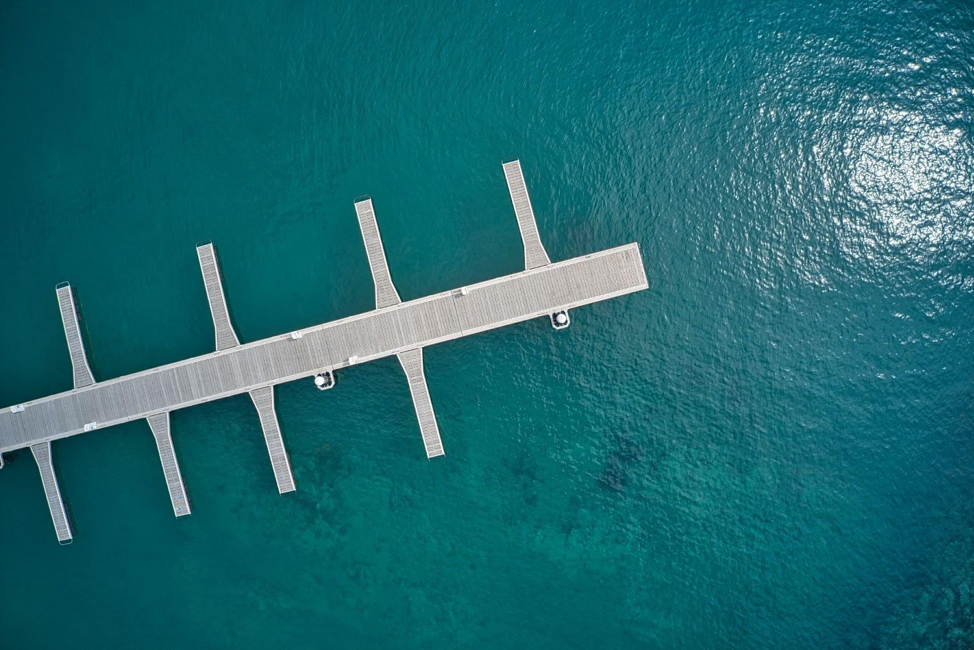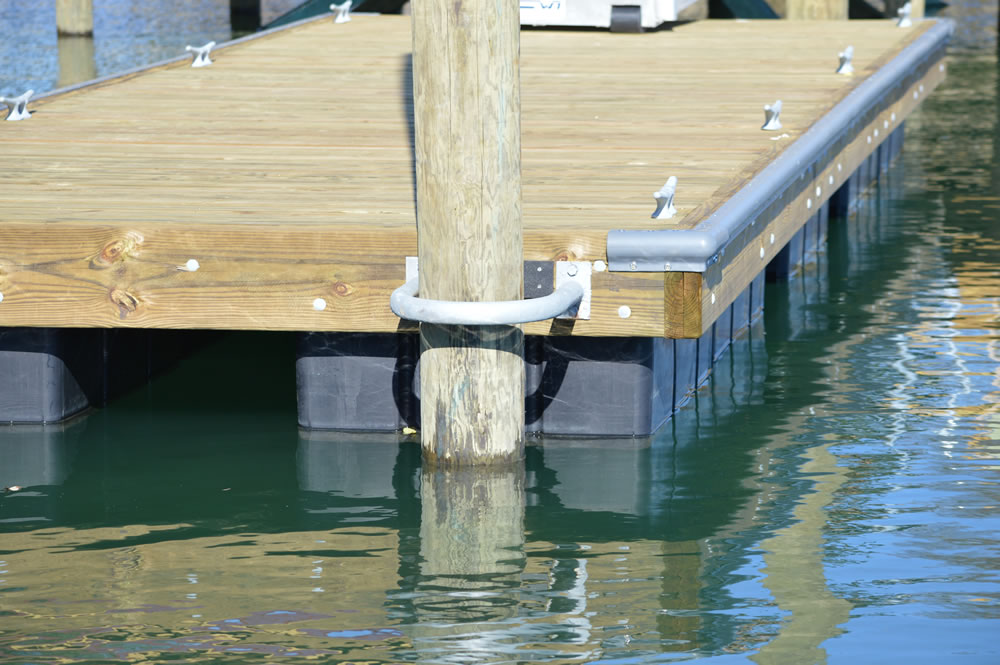Maximizing Your Outdoor Space with Specialized Floating Dock Solutions
Maximizing Your Outdoor Space with Specialized Floating Dock Solutions
Blog Article
Floating Docks: The Perfect Option for Versatile Water Gain Access To
Floating docks present a compelling service for a range of water accessibility needs, using versatility that transcends traditional mooring choices. Their capability to adjust to ever-changing water degrees while guaranteeing stability and safety and security makes them especially advantageous for both industrial and leisure applications. In addition, the modular nature of floating docks promotes customization, catering to specific demands. Nonetheless, the nuances of setup and maintenance, alongside the array of applications, call for a closer exam to totally appreciate their potential advantages and implications for waterway access techniques.
Benefits of Floating Docks
Floating docks deal numerous benefits that enhance water access for various applications. Their capacity to increase and fall with altering water degrees makes them especially beneficial in atmospheres with varying trends or seasonal variations. This adaptability ensures that vessels can easily anchor without issue for the water's depth, giving a reliable platform for leisure, industrial, and industrial uses.
In addition, floating docks are frequently constructed from durable materials that withstand corrosion, making them ideal for long-lasting usage in aquatic environments. Their setup is generally much less intrusive than traditional fixed docks, lowering the environmental influence and promoting quicker implementation (floating docks). This versatility enables for less complicated moving or reconfiguration according to individual needs or environmental adjustments
Security is one more key benefit; floating docks can supply secure accessibility for people boarding or getting off from boats and reduce the danger of accidents connected with unpredictable surface areas. In addition, they can be created to fit a range of devices, such as fenders and cleats, boosting capability. On the whole, floating docks stand for a reliable remedy for enhancing water access throughout diverse markets while advertising safety and ecological sustainability.

Kinds Of Floating Docks
Different kinds of floating docks satisfy various needs and settings, each developed with certain attributes to enhance functionality. The most usual types consist of modular docks, which contain interlacing sections that permit easy modification and development. These docks are ideal for recreational usage, as they can be customized to fit various watercraft dimensions and water conditions.
Another popular choice is the fixed floating dock, which remains secured in position yet drifts with altering water degrees. dock company. This kind is especially suited for areas with very little tidal changes, providing steady accessibility for angling or swimming. Additionally, there are drive-on docks, which feature a sloped style that allows boats to easily drive on and off, making them ideal for individual boat and smaller vessels
For industrial applications, sturdy floating docks are offered, built from enhanced products to hold up against significant lots and harsh aquatic environments. Environmentally friendly floating docks use lasting materials and layouts to decrease environmental impact, often including functions like plant life to sustain local wild animals. Comprehending the different kinds of floating docks ensures that individuals can select the most suitable option for their certain demands.
Installment Refine Review
A successful installment of floating docks calls for careful preparation and focus to detail to guarantee ideal efficiency and safety. The first action includes evaluating the website conditions, including water deepness, existing, and potential challenges. This analysis educates the option of the suitable dock materials and layout tailored to the particular environment.
Following, acquiring essential licenses is crucial, as lots of territories have policies pertaining to building on water bodies. Once authorizations are secured, the installment can proceed. Begin by preparing the foundation, which may entail anchoring systems or pilings tailored to the dock kind and local problems.
Following the foundation arrangement, set Web Site up the dock sections according to maker specs. Guarantee that all components are firmly attached and aligned to hold up against environmental tensions. Placement the dock in the designated location, ensuring it is level and steady.

Maintenance Tips and Best Practices
After the setup procedure is full, ongoing maintenance plays Home Page a crucial duty in making certain the durability and performance of floating docks. Normal examinations must be carried out to recognize any kind of signs of wear, degeneration, or damage - floating docks. Check for any type of loosened fittings, fractures, or splitting up in the dock sections, as these can compromise structural stability
Cleaning up the dock is vital to remove particles, algae, and various other build-up that can impact its look and security. Make use of a mild stress laundry periodically to maintain cleanliness without creating damages to the surface. In addition, applying a protective sealant every few years can assist enhance long life and withstand ecological wear.
Focus on the mooring lines and supports, guaranteeing they are safe and secure and free from corrosion. Change any kind of abject elements immediately to prevent risks. Seasonal changes may likewise be required; during extreme weather, enhancing the dock or repositioning can avoid damages.
Applications for Floating Docks
Floating docks offer a multitude of applications, satisfying both entertainment and commercial demands. In entertainment settings, they supply seamless accessibility to waterways for tasks such as boating, fishing, and swimming. Their adjustable nature permits installment in varying water degrees, making certain risk-free and steady gain access to despite tidal variations.
Readily, floating docks are indispensable for marinas and waterside businesses. They help with the docking of vessels, enabling reliable unloading and loading of products. Their modular design permits simple growth or reconfiguration to fit transforming service demands, making them suitable for watercraft rentals, scenic tour procedures, or angling charters.
Furthermore, floating docks are utilized in environmental applications such as water study and habitat reconstruction. They can function as systems for clinical studies, monitoring water top quality, or performing wild animals surveys without disturbing delicate communities.
In commercial contexts, floating docks are employed in building jobs, providing accessibility to hard-to-reach locations for equipment and employees. Their adaptability, sturdiness, check and very little influence on the environment make them an ideal selection for a vast array of applications, enhancing both performance and access in different water-based settings.
Final Thought
In verdict, floating docks stand for an optimum solution for diverse water accessibility needs, owing to their flexibility, durability, and modular layout. Floating docks offer as a beneficial property for recreational, industrial, and ecological projects, guaranteeing dependable access to rivers and advertising lasting methods in water settings.
Floating docks existing a compelling solution for a variety of water gain access to needs, offering adaptability that goes beyond typical mooring choices.Floating docks deal many benefits that improve water access for various applications. In general, floating docks stand for a reliable service for improving water access across varied industries while advertising safety and ecological sustainability.
Another preferred choice is the fixed floating dock, which continues to be anchored in area yet drifts with transforming water degrees.In verdict, floating docks represent an optimum remedy for varied water access requires, owing to their versatility, toughness, and modular layout.
Report this page